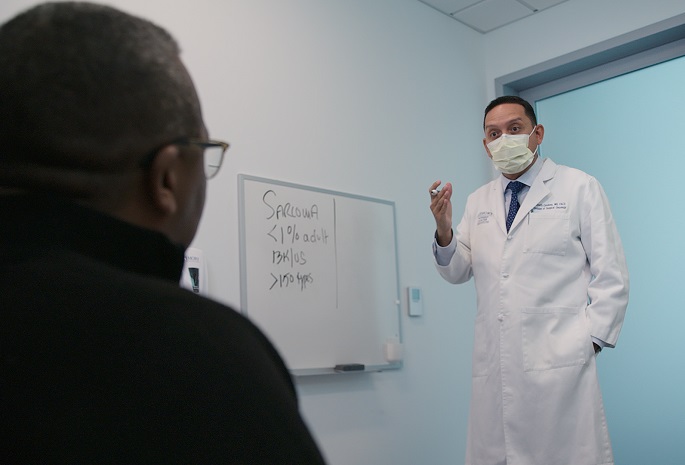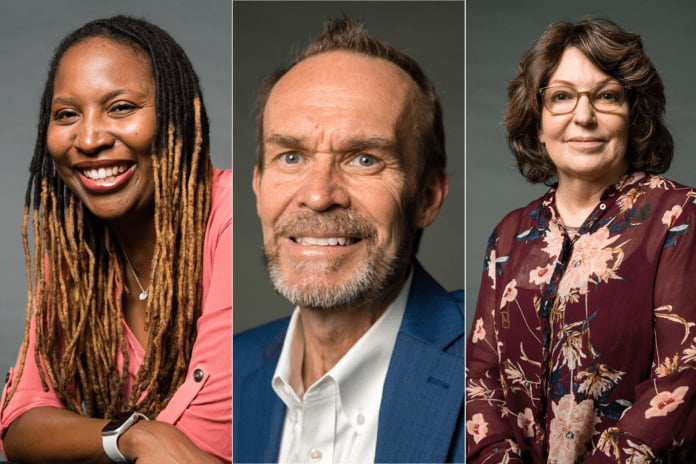“Given the highly addictive potential of nicotine in cigarettes,” says noted lung cancer expert
Suresh S. Ramalingam, MD, FACP, FASCO, Winship’s executive director and the Roberto C. Goizueta Distinguished Chair for Cancer Research at Emory University School of Medicine, “not taking up smoking is the best way to prevent health problems including cancer.” However, he adds that current smokers have options—there are still evidence-based methods to quit smoking and improve their health.
2. Maintain a Healthy Weight
The National Cancer Institute says that obesity is a risk factor for 13 different cancers. By maintaining a healthy weight, you can avoid these risks. “A healthy lifestyle, including eating foods like vegetables, whole grains, beans and fruit, can help you reduce your risk for cancer and several other chronic diseases,” says Tiffany Barrett, MS, RD, CSO, LD who manages the dietitians at Winship. “Choosing lean protein options and reducing your intake of red and processed meats—small, simple changes to your daily diet is the first step in healthy eating.” Emory Healthcare offers weight management programs since diet and exercise alone aren’t always enough for people to maintain a healthy weight.
3. Get the HPV Vaccine
The HPV vaccine helps prevent cancer. “Each year in the United States, there are more than 40,000 new cases of the six HPV-related cancers, which include cervical, vaginal, vulvar, anal, penile and oropharyngeal,” says Winship Cancer Prevention and Control researcher Robert A. Bednarczyk, PhD, associate professor of global health at Emory University Rollins School of Public Health. Bednarczyk, whose research focuses on the prevention of cervical cancer and other human papillomavirus-related diseases through the use of HPV vaccination, says, “Because many of these cancers don’t have routine screening tests, we aren’t able to catch them early—so HPV vaccination is a safe and effective way to prevent them.”
The Centers for Disease Control and Prevention (CDC) recommends HPV vaccination for people from age 9 up to 45 years old. The CDC advises that unvaccinated individuals between ages 27 and 45 can still benefit from the vaccine, and they should speak with their doctor about their risk for new HPV infections and the possible benefits of vaccination.




